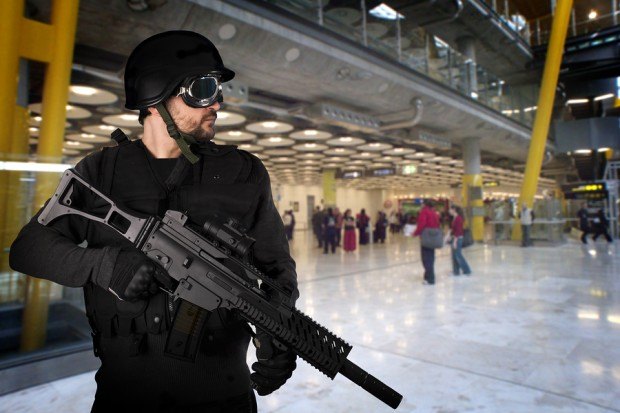Marsh unveiled a new report warning that the cost of terrorism reinsurance will become “volatile” without the Terrorism Risk Insurance Act. It also emphasizes that the post-9/11 law has helped stabilize the market in numerous ways.
Marsh’s 2014 Terrorism Risk Insurance Report, based on a survey of close to 2,600 client companies, formed the basis of a roundtable/expert discussion at the U.S. Capitol on April 22 that helped promote its findings. But the manner in which Marsh rolled out the report reflects continuing industry efforts to keep the issue in the spotlight—and keep pressure on Congress to renew the law before it expires at the end of 2014.
A Senate bipartisan bill filed earlier in April would renew the measure but also make some changes, and it is in contention with a number of House bills.
The Marsh report has come out annually over the last four years. Underscoring its use as a lobbying tool, Marsh & McClennan Companies co-sponsored the roundtable event with the Coalition to Insure Against Terrorism, an association that represents business insurance consumers in various industries that supports TRIA’s renewal.
Among the report’s major conclusions:
- Expect the cost of terrorism insurance coverage to become volatile if TRIA isn’t extended (in what is formally called the Terrorism Risk Insurance Program Reauthorization Act).
- Uncertainty over the renewal of federal terrorism reinsurance coverage is already harming the market. For example, the current status has left some workers compensation insurers pulling back from underwriting employers’ risks “in certain high-profile industries with large employee concentrations or in certain major cities.” Close to half of property insurers Marsh surveyed said they won’t include standalone terrorism coverage if TRIA expires.
- The number of companies buying terrorism insurance has stayed in the mid-60 percent range since 2009. Along with that constant market, pricing has remained stable.
- Construction companies paid the most for terrorism insurance in 2013, at a median rate of $66 per million of total insured value). On the other end of the scale, health care companies paid the least—at a median rate of $14 per million of total insured value.
Dan Glaser, president and CEO of Marsh & McLennan Companies, said in a statement that his company’s latest industry survey/report confirms that TRIA continues to serve a vital purpose.
“We believe TRIA is a model private-public partnership,” Glaser said. “There is strong, long-term demand for the insurance it backstops with more than six out of 10 companies in the [Marsh] survey purchasing coverage. The existence of the federal program plays a major part in the availability and affordability of the coverage.”
Leigh Ann Pusey, president and CEO of the American Association, said in a statement that the Marsh report helps back up earlier reports outlining how TRIA has been a vital ingredient for market stability in a post-9/11 world.
“TRIA provides the stability and certainty that enables a private terrorism risk insurance marketplace to exist,” Pusey said. “Congress should take the [Marsh] report as further evidence that TRIA is working, and should be renewed quickly on the same terms and conditions that exist today.”
Her comments follow the release of a report on April 17 from the President’s Working Group on Financial Markets, which concluded that the private market can’t provide reinsurance for terrorism at the same level currently provided by the government through TRIA. The group includes the Secretary of the Treasury, the Chairman of the Board of Governors of the Federal Reserve System, the Chair of the Securities and Exchange Commission and the Chairman of the Commodity Futures Trading Commission.





















 Telematics and Trust: How Usage-Based Insurance Is Transforming Auto Coverage
Telematics and Trust: How Usage-Based Insurance Is Transforming Auto Coverage  New Texas Law Requires Insurers Provide Reason for Declining or Canceling Policies
New Texas Law Requires Insurers Provide Reason for Declining or Canceling Policies  Teens’ First Year on the Road Most Deadly
Teens’ First Year on the Road Most Deadly  Large Scale Cargo Ring Busted in LA, $5M Recovered
Large Scale Cargo Ring Busted in LA, $5M Recovered 













